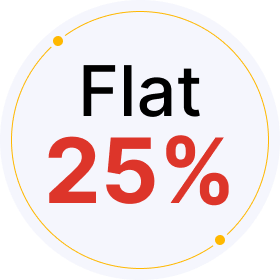
- Toshendra Kumar Sharma
- June 15, 2020
Blockchain, in marketing, which was considered hype mostly, is now going mainstream—brands like Unilever, Nestle. McDonald’s, and Virgin Media have signed up for blockchain to improve transparency in digital marketing. The initiative would unlock data inefficiency, fraud, and trust issues, making it the tip of the iceberg. In 2020, there are many ways in which blockchain can benefit marketing based on surveys on future directions and industry standing in 2019.
There are several questions in the mind of newcomers or even blockchain professionals when it comes to the effect of this revolutionary technology on marketing and advertising. We, in collaboration with a blockchain expert, try to answer all these questions.
Learning of the Blog
- Introduction to Blockchain
- Blockchain in Advertising
- How blockchain affects marketing?
- Exciting Blockchain Marketing Startups
- Conclusion
The number of blockchain companies in marketing has grown 13 times in the last one and a half years, and we believe this positive streak would continue in 2020, and in this blog, we prove why!
Introduction to Blockchain
In layman terms, blockchain is a decentralized database, i.e., not controlled by a single central unit but by a group of users. The data contained in the system is encrypted. It cannot be deleted or modified. Any file or data can be stored in chain blocks according to the blockchain theory. The technology finds use in many domains. In the blockchain system business transactions, financial information and health records are permanent and stay unchanged. Thus, blockchain is a new, transparent, and secure tool for industries such as advertising. You can check out an online blockchain course before reading about blockchain in advertising and marketing.
Blockchain in Advertising
Like the Internet three decades ago, and social media in the last decade- blockchain is a foundational technology that can disrupt the marketing landscape. It is based on distributed ledger technology, which has massive potential to touch different points of the marketing value chain. Smart contracts between agencies and brands and micro-payments that incentivize customer interactions have the potential to revolutionize marketing. There are about 219 companies that allow leveraging blockchain in marketing campaigns. Everyone involved in startups or innovative businesses need advertising. Sometimes, the feedback doesn’t match the expectations or, in some cases, result in a scam. So can blockchain make a difference? Let’s find out!
How Blockchain Affects Marketing?
In 2020, blockchain is a panacea for all of the advertising worries. The ideas that were mere theory are being replaced with valid and tried solutions solving transparency, efficiency, and tackling fraud. Identity-solving applications are becoming more real. Here we list down what all blockchain has to offer to the industry:
1. A Way to Share Rewards
The distributed ledger technology automates payments at any scale, making it possible for brands to send micro-amounts to the consumers. This has massive implications as it is used to transfer money directly into bank accounts, replacing gift cards and online credit with limited redemption possibilities. This lets customers have a monetary incentive, no matter how small the interaction is.
2. Optimized Advertising Value Chain
One of the focus areas for blockchain in marketing is Adtech. Managing digital ads is a prime candidate for moving to a secure, transparent, and accountable distributed ledger.
3. Verifies Data For Customer Intelligence
Blockchain can gather, check, store, and automatically update databases with a little human intervention. This is believed to transform the customer insights’ approach. Blockchain is the perfect underlying platform to generate ideas because it prioritizes data-driven marketing.
4. Targeted Content Delivery
Data can be linked to a hyper-personalized segment of insight generation rather than using automated insight generation for effective targeting.
5. Serverless Architecture
Serverless architecture is a better option than traditional cloud hosting to deal with thousands of transactions as it allows stores to scale as per customer demand. Blockchain directly enables brands to gain from zero performance gaps and indirectly by going serverless as it will enable them to host on-demand campaigns.
6. Transparency and Trust
Blockchain helps advertisers select the right publishers, quantify the results of an advertising campaign, helps build trust, and prevent fraud. This reduces cost and speeds up transactions. Consumers are aware of the entire process before the distribution of goods is visible.
Exciting Blockchain Marketing Startups
RadPay, a payment and rewards startup, hopes to make blockchain mainstream in 2020. It has a broad spectrum of marketing applications, including cart abandonment reduction, revenue generation, and borderless business.
Singapore based Aqilliz is focusing on adtech with three unique products. Proton is an advertising layer which brings about transparency to ad supply chains. Neutron is the company’s solution to identify management for stakeholders, and Electron ensures advertisers receive maximum value from their digital investments.
Affle, a Singapore based startup, is the next-gen CDP, which has turned the concept of blockchain verified data into reality. It is a mobile targeting platform that uses blockchain data for in-app ads, fraud detection, and consumer-targeted advertising.
Conclusion
Blockchain can manage and record data securely, conduct trusted transactions, increase automation and data reliability, enable data flows among partners, and so on. When combined with Artificial Intelligence, there is a clear path forward, and the reward is clear. It is recommended to keep an eye on the platform and use it to full advantage. Companies that are making a shift are looking for professionals with blockchain certifications. The technology is set, and it’s your time to dive in!



































































 Guides
Guides News
News Blockchain
Blockchain Cryptocurrency
& Digital Assets
Cryptocurrency
& Digital Assets Web3
Web3 Metaverse & NFTs
Metaverse & NFTs
